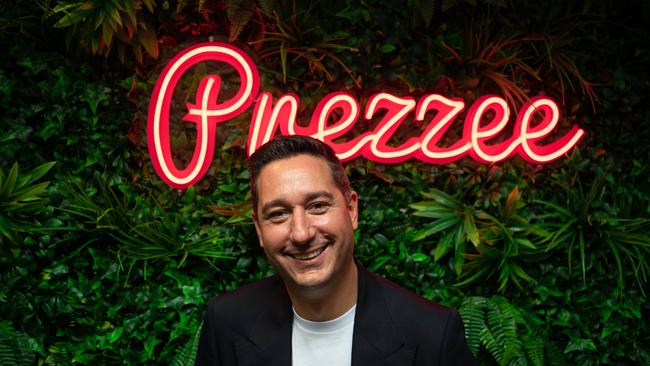Presents no more: Gift cards helping cost of living pressures as inflation and interest rate rises bite
Prezzee says consumers are using digital gift cards to budget, and corporations are using them to help employees pay for work-related costs. It is a big shift in spending patterns.

Spiralling Inflation and rising interest rates have hit the humble gift card, changing it from something for special occasions to a tool to help staff battle cost of living and consumers budget.
Jamie Samaha, chief executive of digital gift card company Prezzee, says the business is expanding rapidly around the world, but not necessarily in the ways he and management had envisioned.
While once gift cards were earmarked for exactly that – a present for a birthday, office farewell or significant occasion, Samaha says Prezzee has definitely noticed a shift in what the cards are now being used for.
“Organisations are asking staff to come back to the office, but there are rising travel costs. So we’re seeing companies using Prezzee cards for their staff around transport costs. On the flip side, people are still working from home as well. So employees are helping employees set up to do that,” Samaha says. “Once it was employees saying ‘we have to support you through Covid’. That’s transitioning to we‘re going to have to support you through some kind of macro pressures you might have in terms of cost of living and (interest) rate rises.”
Samaha says there has been similar changes in consumer habits when it comes to using the Prezzee cards. “We’re seeing a shift to the cards being used more for every day essentials, whether it is your utilities bill, paying for your fuel, paying for your groceries. Previously it was maybe more discretionary areas,” he adds.
He says consumers are using the cards as a budgeting tool, sticking to the amount the cards can be redeemed for as a way of limiting spending every month or over a certain period of time.
The change in habits for the cards, Samaha hopes, means that Prezzee can emerge as a “recession-proof” company.
The firm is headed for $100m revenue for the 2023 financial year, about double it achieved in the last 12 months, and total spending on the cards in Australia and markets such as the US and UK is forecast to reach $2bn.
Prezzee is 85 per cent owned by billionaire Shaun Bonett, a member of The List – Australia’s Richest 250 and last year achieved “unicorn” status in being unofficially valued at $1bn as a private start-up. The business takes a percentage cut of the gift card value as revenue.
Prezzee also supplies white label gift cards for corporate customers such as JB Hi-Fi, UberEats, QBE, Coca-Cola, Allianz, Atlassian and Samsung, and has launched a Prezzee eGift card and Prezzee app, on which consumers can buy, send and store eGift cards from a range of retailers.
The US in particular has big growth potential for Prezzee, where locked down consumers splurged on e-commerce from home during the pandemic.
Prezzee management said the US gift card market is worth about $260bn, about one-third of which is spent on digital gift cards, and the company aims to capture 10 per cent of the market.
Samaha also has high hopes for the UK, and mainland Europe where Prezzee aims to expand in markets such as Germany and France as part of what he calls “measured growth”.
The US and the UK are expected to account for about 40 per cent of Prezzee’s revenue in 2023, and the business – unlike an increasing number of technology firms – is profitable and hiring staff. “We’ve gone from 100 people to 300 in the past year,” Samaha says. “ And we will probably grow by another 100 to 150 people over the next 12 to 18 months.”
Samaha says Prezzee has proactively reached out to tech start-ups that have announced lay-offs or have hit financial trouble, and notes that about 24 per cent of its software engineers are female – double the industry average.
“It really helps with hiring when we show we have a strong balance sheet, we are fully funded and still growing and putting on people. Their jobs are safe, so that becomes very attractive.”
Prezzee could also be becoming more attractive to investors.
Samaha reveals there has been interest from private equity and investment banks pitching to drum up interest from potential buyers, but Prezzee remains mostly in Bonett’s hands.
“We‘re always open (to discussions) as any business should be. But we have a very clear strategic plan, we are on track. And we are growing,” he says. “I think we focus on that and then the rest kind of takes care of itself.”






